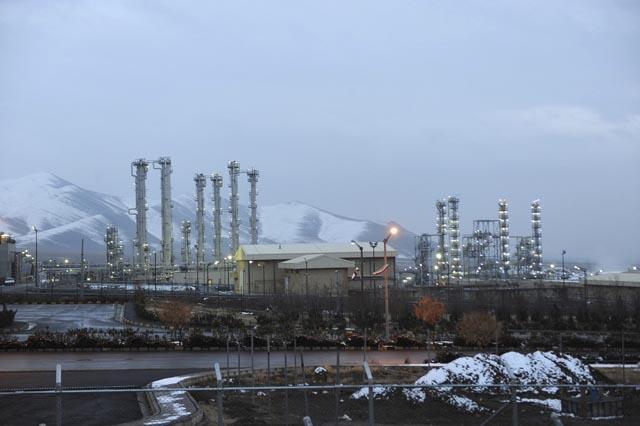TEHRAN — Unblocking billions of dollars in funds to Iran under a landmark six-month nuclear deal with the West will have a significant economic and psychological impact on the Islamic republic, experts said Monday.
Iran and Western powers announced on Sunday that the deal will take effect from January 20.
Tehran had agreed in November to roll back parts of its nuclear programme and halt further advances in exchange for the release of billions of dollars in frozen assets and limited relief from crippling sanctions.
A senior US administration official told AFP that the first $550 million (400 million euro) instalment of $4.2 billion in frozen assets would be released early next month.
“The instalment schedule starts on February 1 and the payments are evenly distributed” across 180 days, a senior US administration official told AFP.
Analysts say unblocking the funds will breathe new life into the economy and provide much-needed relief across Iran.
“The political and psychological effect will be [more] considerable,” than the amount of funds involved, economic expert Saeed Leylaz said.
“It will be easier to sell our oil, our petrochemical products and recover our petrodollars. And all the products we buy abroad will cost 10 per cent less,” Leylaz indicated
The international community has slapped Tehran with punitive measures that strangled its economy, with the United States leading the way since Iran’s Islamic revolution in 1979.
Washington tightened the noose over the years by imposing sanctions targeting Iran’s banking and oil sectors, as well as goods, services and technologies needed for its petrochemical industry.
The European Union (EU) has taken similar steps since 2010 and the UN Security Council has also approved four sets of sanctions since 2006.
The deal between Iran and the six world powers known as P5+1 foresees the six-month suspension of “certain sanctions on gold and precious metals, Iran’s auto sector, and Iran’s petrochemical exports”.
It will also “license safety-related repairs and inspections inside Iran for certain Iranian airlines” and unblock the $4.2 billion from sanctioned Iranian oil sales, according to an official statement released in November.
Oil, inflation and
the auto sector
According to Leylaz, sanctions relief could bolster state coffers in the long run, and estimates that annual revenues will rise by $20-$25 billion.
The increase will help the government control inflation, which officials put at 40 per cent, and meet the demands of a population hungry for more consumer goods, he said.
The head of international relations at Iran’s national oil company, Mohsen Ghamsari, expects oil exports will grow if sanctions relief becomes a long-term exercise.
Ghamsari, in comments published by Iranian newspapers, said oil exports had already increased in recent months to 1.3-1.4 million barrels per day (mbpd) compared to 1.2 mbpd.
Leylaz pointed out that Iran has sold $34 billion worth of oil and byproducts during the past nine months, earning $32 billion.
Former Tehran Chamber of Commerce official Mohammad Reza Behzadian said that with this “supplementary revenue, the government will be able to import consumer products which are needed by the population”.
“The government will also be able to pay its debts to private firms, and this will breathe new life into the economy,” he told AFP.
Iran’s auto sector — which accounts for 10 per cent of its gross domestic product and is the country’s second-biggest industry after oil — is also likely to benefit from sanctions relief.
Iran manufactured 1.6 million cars in 2011, but a year later, production was halved.
“By 2016 we could reach our 2011 production level and we will certainly have more access to new technologies,” said Leylaz.
In a sign of things to come, major international carmakers and parts suppliers showed up in Tehran for a conference in late November, hot on the heels of the nuclear deal, to assess future potential.
US analyst Mark Dubowitz said in an opinion piece in Iran Daily on Monday that the economy has been recovering since the deal was struck and that this had changed the “market psychology”.
But a US official has warned the sanctions relief will be terminated if Iran does not comply with the terms of the deal.
Iran’s top negotiator Abbas Araqchi said his country will keep to its side of the bargain — namely not to enrich uranium over 5 per cent and to dilute or oxidise half of its 20 per cent enriched uranium.















